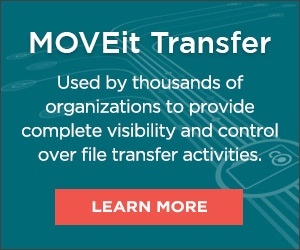All professions benefit from participation in a connected world and legal is no exception, as the digitization of everything continues unabated.
Considered a landmark case in the legal profession, Zubulake v. Warburg involved a harassment and gender discrimination suit filed by Laura Zubalake. As part of the discovery process, the company was asked to produce all emails referring to the plaintiff. Citing costs of $175,000 the company did not comply. The usual pretrial decisions took place in relation to who pays the recovery costs and finally, it was the company that correctly had to pay all discovery costs.
During this discovery process, it became clear that some backups were lost. A judgment of deliberate destruction of evidence was reached and the defendant received compensatory and punitive awards of $29.2m in a jury verdict two years later. When did this case take place? 2003. Surprised? I’m not a lawyer, so I was.
How is it that some 14 years later, many companies are totally unprepared for e-discovery if litigation occurs?
Bear in mind that in 2003, many aspects of legaltech and indeed ubiquitous high-speed broadband (3G adoption started in 2001 but it took until 2008 before American subscription rates equaled Western Europe) were still to come and this case focused solely on email correspondence. Only a handful of vendors (Electronic Evidence Discovery, now known as Daticon EED, and Catalyst were two of them) even had software products aimed at e-discovery.
Despite being an early e-discovery case, it laid the early framework for today’s litigation processes that do not involve paper-based documentation. Listed in no particular order, these issues included:
- It is expected that parties will preserve all electronic evidence.
- The lawyer must monitor their client’s compliance with electronic data and sampling.
- Data sampling.
- The ability for the data owner to shift costs of restoration to the requestor.
- The imposition of penalties for destruction of evidence.
We’ve all seen these before.
Legaltech Has Advanced?
All professions benefit from participation in a connected world and legal is no exception, as the digitization of everything continues unabated.
“Broadly speaking, LegalTech is technology (mostly software) designed to assist consumers or providers of legal services with tasks that are related in some way to the legal system. That’s a very broad definition, and the category itself is suitably broad. It includes everything from tools for helping individuals find good lawyers to tools that help lawyers research and understand the law,” said Jeff Kerr, former litigator and the CEO and co-founder of legal case management solution CaseFleet
Kerr admits that there is room for improvement in the legal space.
“I hate this cliché, but it’s not incorrect to say that many areas of the legal industry are ripe for disruption. We use antiquated systems for filing legal documents; we do too many things by hand that can be automated; we don’t use databases as well as we could. In my opinion, the most important area in legal tech is making e-discovery more accessible and less expensive.”
Not all legal experts are tech-savvy.
“There are still many lawyers and judges who would prefer to turn back the clock to simpler days, when all documents were paper, but the sane response is to learn the skills needed to harvest this new and incredibly powerful form of [electronic] evidence,” said Kerr.
E-discovery 101+
Simply put, e-discovery is the process by which digital data is reproduced in a human readable format. This does not mean rolling a server into the courtroom and displaying query results. Data is printed on paper for legal use.
“It’s something that companies must be prepared for when (or if) they become involved in ligation,” said Kerr.
Being successful at e-discovery is not solely down to an effective data management solution but also required specific legal expertise.
“The minimum requirements for success at e-discovery (as opposed to often ugly failure) is finding counsel who understands how to deal with electronic information in litigation. Few lawyers possess this ability. We are a technically challenged profession, and many of us went into law because it’s a great profession for smart people who nevertheless aren’t adept at math, science or computer science. Still, a business must find a lawyer (or a lawyer with a backing team) who knows both the technical and procedural issues involved in e-discovery. Retaining a lawyer without these skills can have disastrous consequences,” said Kerr.
Unfortunately, e-discovery procedures do not stand still and evolve as new case results add complications or new directions to the discovery process, hence the requirement for a legal expert with knowledge of this area.
“Recent changes to the rules of e-discovery were driven by a large and successful campaign on the part of large corporations to restrict what could be “discovered” during litigation. Corporations became convinced that e‑discovery was of limited value and was primarily used by their adversaries in ligation to drive up costs and extort settlements,” said Kerr.
Unfortunately, it did not have the desired effect as “The response to this campaign was to modify certain rules of procedure in a way that could actually increase the costs of litigation in certain respects. The real answer to the problems noted by various observers is to increase e-discovery competence among lawyers and for courts to insist upon more collaboration between parties when it comes to exchanging data,” said Kerr.
Legal-speak Not Required
Companies need not become legal experts themselves or involve themselves in legal research to protect themselves.
Firstly, enter an e-discovery mindset.
“Electronic evidence is evidence, and all that parties need to do is make this point very clear and courts generally will permit it to be discovered,” said Kerr.
By adding or locking down a few processes, companies can protect themselves against data loss or accidental deletion.
Archive all company data in a secure manner, with multiple backups, in different physical locations if possible.
Have a data deletion policy that you can defend in court – ask your lawyer.
Have a BYOD policy that ensures data loss is not possible, even if the employees leaves the company or the device itself is lost or stolen.
Finally, consider new technology, whether software or hardware and the data that interacts with it.
For example, a typical tablet will have access to cloud storage, VoIP and a myriad of other features that transmit data, including email. Your 3D printer or network printer logs could be requested in a discovery process if a stolen design or inflammatory document is involved.
Is your company fully prepared to undergo an e-discovery process that covers all the technology you use? It’s no easy task to block all threats but you should at least be aware of them and perform a risk management assessment.
In conclusion, your company may well never be sued but ignorance of the e-discovery process is no defense and you will suffer if requested data is not provided. Kerr has provided an excellent summary that I’ll unashamedly duplicate, verbatim.
“As lawyers and judges have learned that electronic evidence is often the most reliable and valuable source of proof in legal cases, the requirements of e-discovery have been applied in more and more cases. Indeed, any business involved in litigation must be prepared for e-discovery and must choose counsel with the requisite technical expertise. Poor preparation - or a cavalier attitude about e-discovery - have lead disastrous outcomes, whereas businesses who stay ahead of the curve have a competitive advantage when litigation strikes.”

